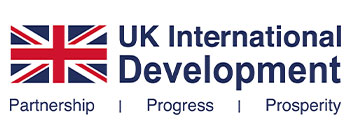Following the successful GSMA Innovation Fund Bootcamp that took place prior to MWC Kigali in October, we are pleased to announce our new cohort of organisations in the GSMA Innovation Fund for Anticipatory Humanitarian Action.
On 24th November 2022, the GSMA and UK Foreign, Commonwealth and Development Office (FCDO) announced the launch of this fund with an objective to back solutions that leverage mobile digital technology to help anticipate potential humanitarian impacts and enable effective early response. By focusing on the important theme of anticipatory action the fund will contribute towards the minimisation of humanitarian impacts and the improvement of preparedness in the face of humanitarian crises.
We set out to invite applications which focus on solutions that:
- Prevent and minimise the impact of humanitarian crises;
- Improve preparedness for sudden onset crises;
- Enable dignified and inclusive communication and assistance during and after a humanitarian crisis; and
- Anticipate incidence and impacts of crises and enable earlier and more effective responses.
We received 143 eligible applications, with over £25 million of funding requested. 65% of applications came from Africa, with a further 22% coming from South and South East Asia. 58% of applications came from not-for-profit organisations, with the majority of those focusing on early action, preparedness and resilience building. We’ve summarised some of the trends observed in this round of applications in our blog here.
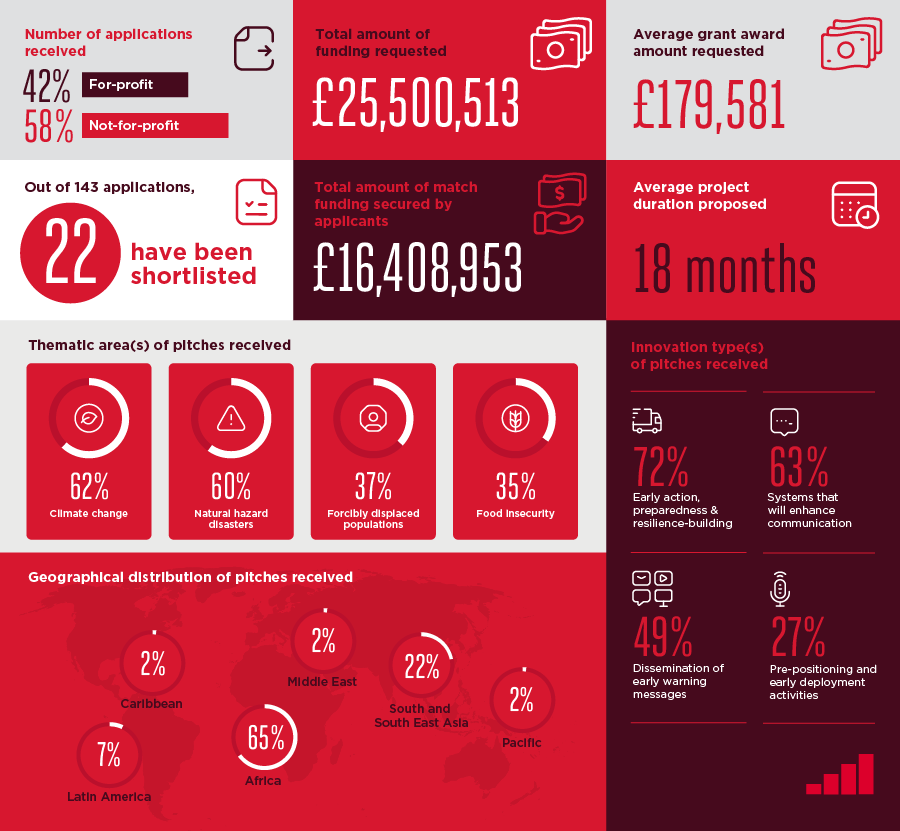
The following organisations are the successful applicants:

ActionAid Cambodia will focus on early action, preparedness and resilience building by providing data generated by mobile technology depicting the movement of people.
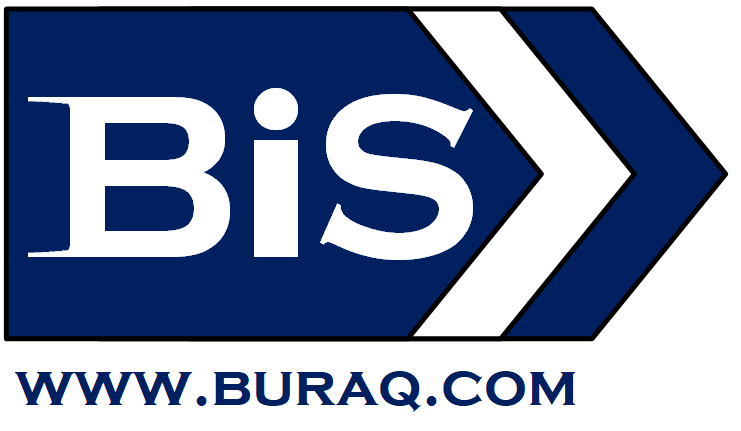
Buraq will upgrade existing weather monitoring systems and deploy new automated weather monitoring systems in the flood prone areas of Gilgit Baltistan in Pakistan enabling accurate early warning communication. The solution will enable local communities in the vulnerable region of Pakistan to take timely action in anticipation of any humanitarian hazards.

NAXA, together with its partners will scale an Anticipatory Action AA platform, i.e., Digital and Spatial Technologies for Anticipatory Action “DASTAA” to flood prone wards of the lower Mahakali basin with the aim of enhancing anticipatory actions and reducing the impacts of disaster at the household level. This approach includes profiling the disaster risks of each household, prior to flooding, monitoring thresholds, enabling local government and humanitarian agencies to take evidence-based decisions for targeted disaster preparedness and recovery programmes.
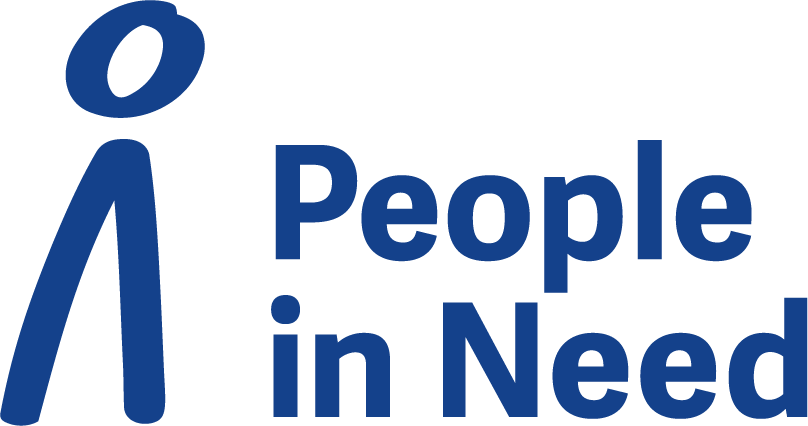
People in Need will develop a monitoring system based on IoT and connected sensors that integrates with government tools and disseminates flood warnings via mobile phones directly to the impacted population.
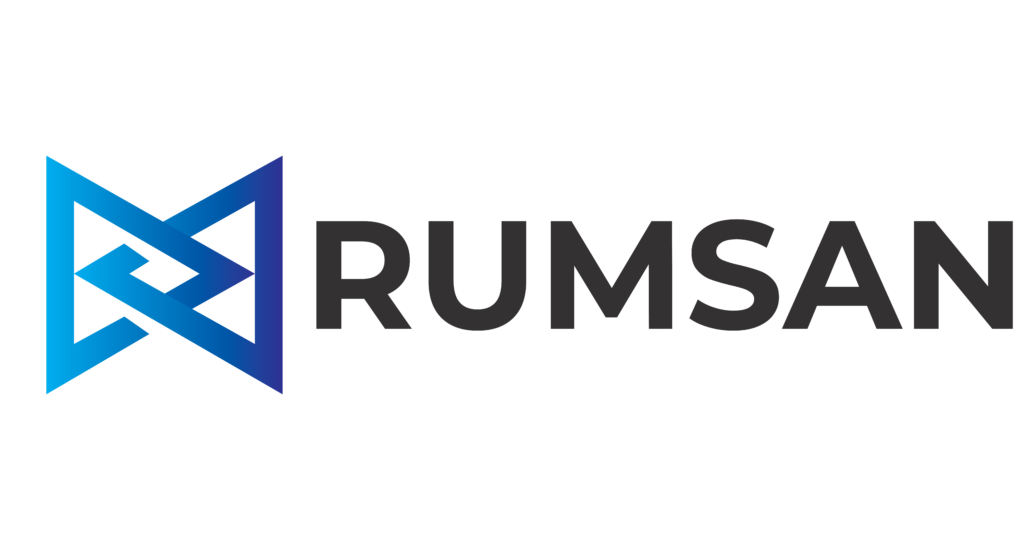
Rumsan will aim to build and pilot a multi signature based anticipatory action programme in an existing mobile technology cash and voucher assistance (CVA) platform. The solution will enable timely distribution of CVA to effected populations before and during a natural disaster.

Synnefa will integrate satellite imagery into their farm management platform, FarmCloud, to provide real-time data on crop health and weather patterns to smallholder farmers in Kenya.
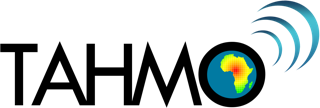
TAHMO, will aim to establish a cost-effective early warning flood system by repurposing existing mobile technology, including the use of commercial microwave links.

Tearfund will use mobile technology to raise awareness of the benefits of insurance, as well as equipping agropastoralists facing climate change related shocks with access to timely climate information, and simple, parametric cover for extreme climate events.
Over the course of the grant, we will support these organisations to strengthen anticipatory action efforts across Africa and Asia. Alongside funding, we will support grantees and their solutions through the following activities:
- Providing knowledge, expertise or best practices on the application of digital tools in the humanitarian space.
- Networking and learning exchange opportunities with other GSMA Innovation Fund grantees and alumni.
- Providing technical support through regular sessions on human-centred design, mobile network operator engagement and marketing guidance.
- Monitoring, evaluation and learning technical assistance, through a dedicated learning partner, to evidence project impact.
- Financial reporting support throughout the duration of the grant.
- Facilitating relationships with mobile operators, humanitarian organisations, and public sector organisations, where relevant.
- Offering opportunities to increase grantee visibility and showcase them to potential partners through profiling their innovative work in GSMA publications and in industry-leading events.
By supporting these organisations and their innovations, the GSMA hopes to generate insights and evidence to understand more about anticipatory humanitarian action and benefit humanitarian organisations and mobile industry stakeholders more broadly.
To learn more about the organisations we have supported, take a look at the GSMA Innovation Fund portfolio.
